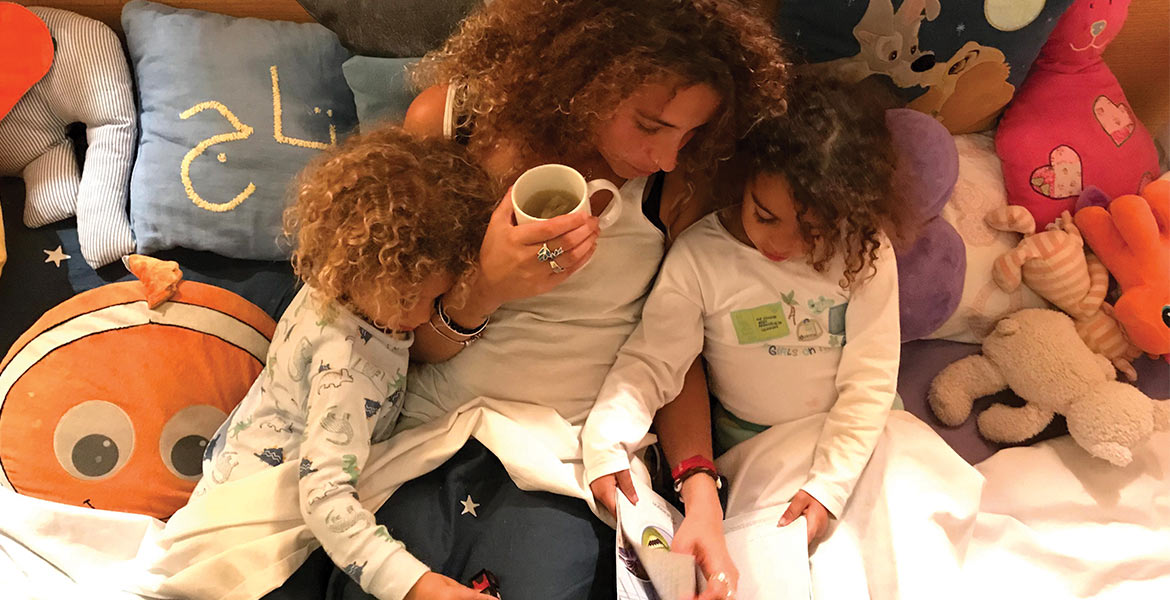Language is heritage. There is a folktale that tells a story of an old hero at a time before writing existed, called Abjad. He spoke to the universe, and in order to tell his tale he had to invent writing.
I’m an Arabic native, but I’m ashamed of my language skills. My language is poetic, an art, the language of fairy tales, and yet I speak #Franco-Arabic. So yes, I need to teach my children their native tongue.
Western culture is awesome, and honestly has been good to me personally but not my language. I’m a fusion of a very calm, artistic, philosophical and mathematical heritage known as the Arabic culture, and a modern, fast-paced, narrow attention span one that spits words to get ideas across: the Franco-Arabic culture. The result is reflected in today’s many forms of expression including speech, writing, music, film and even dance. One might argue that the language is outdated; that it doesn’t matter, as long as the new generations can communicate among themselves and to the outside world. Valid argument, but how can you tell your story if you can’t speak your own language?
I realized that there is a very nice thing when it comes to fusion. It works best when both sides have something to give. I chose to raise my children in a so-called bubble –and that is true whether I admit it or not. The bright side is that it’s a fusion bubble, and it exposes my children to various tongues. Those tongues come with their own heritage of thought patterns, literature, culture, arts and wisdom. In a way this exposure is expanding their minds. Fusion of cultures has always been a fusion of knowledge, sparking curiosity and creativity. A very healthy process, but gives rise to the question: what attracts these wisdom travelers? What attracts them here to be among us and exchange this knowledge? It’s pretty straightforward: it’s who we are, or rather, the hope of getting a glimpse of our origins. So the more we can give the more we can get. No surprise there; it’s one of the rules of life.
We also cannot give what we don’t have. So it comes instinctively that we first must possess what we want to give. I decided to speak Arabic to my children whenever I can. They always try to speak back in another language; that’s OK. When they do their dialect is influenced by pop culture, and that is also OK. It is the price of curiosity and I must accept it. My focus is to try and keep a fusion balance –hoping that one culture does not consume the other and they are able to define their heritage, and one day understand their origins. So speak Arabic to your kids whenever you can. Learn more Arabic yourself, and speak it to them. Teach them calligraphy as a form of art. Read them poetry, and tell them what it means. Relive the Arabic folktales, and have them explore the endless wisdom they hold. It’s easier said than done, I know. I don’t have the answer; I’m as lost as you are. I can only aspire to not be part of the problem.
I’ll leave you with the ending of that same folktale: a story that depicts an upside down world, where what seems to be true is also false.
Abjad was a traveler on a road, on a path of pilgrimage; an old soul who achieved his life missions and is now searching for a greater goal. He packed his necessities and started his journey. He visited his parents, and realized that they had already given him the love he needs to survive in the world ahead. He went to the next village and tongues started to differ. Actions even. He adapted, restocked, and went on. He went as far as a hundred cities when dialects became whispers, and eventually words became unknown –yet he continued. Cities became different worlds; people’s faces changed and values seemed to differ. All that he had known was suddenly shattered.
This new world was very different from his. People would sometimes place fear in the heart of others, in an attempt to gain power or control over them. Others sacrificed their personal youth in exchange for objects that would outlast them. Love was portrayed as a weakness rather than strength. Even their own native language was seen as an embarrassment, an old and forgotten tradition. It was crazy, an upside down world. The only thing that made sense was his heritage. Remembering his intentions, he moved on, leaving behind a trail of his mind in the form of language, the only thing he had to offer. After a while, people listened and learned this new tongue. As he expressed his thoughts in form, out came geometry, arts, poetry and music. A new pattern of expression emerged, and it was brilliant.
Please let’s not forget our heritage, it is full of wonders.

